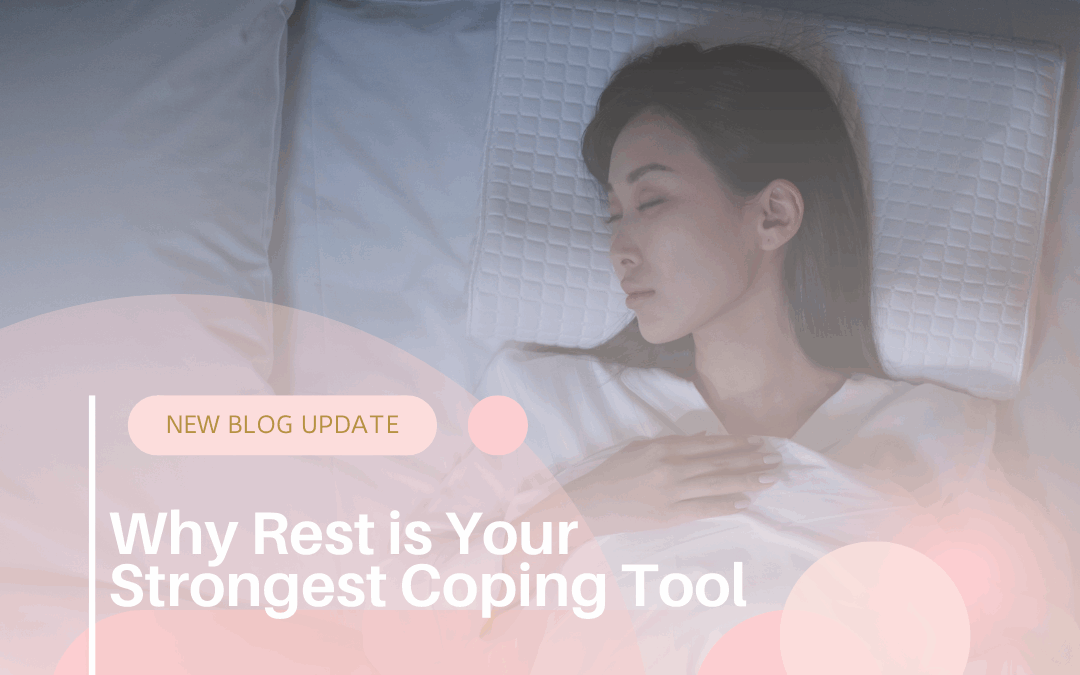When life feels overwhelming, many people try to push through stress, anxiety, or low mood with sheer willpower. But what if the strongest coping tool you have is something you’re already doing every day—sleep?
Sleep is more than just “recharging your batteries.” It’s an essential process that supports emotional balance, cognitive functioning, and overall resilience. Without it, even the healthiest coping strategies can lose their effectiveness.
The Connection Between Sleep and Mental Health
Research consistently shows that sleep and mental health are deeply intertwined. Poor sleep can increase vulnerability to anxiety, depression, and irritability. At the same time, mental health struggles can make it harder to fall asleep or stay asleep—creating a frustrating cycle.
-
Mood regulation: Deep sleep helps stabilize brain chemicals like serotonin and dopamine, which influence mood and motivation.
-
Stress response: Adequate rest reduces the overproduction of cortisol (the stress hormone), making it easier to handle challenges.
-
Cognitive clarity: Sleep is essential for memory consolidation and problem-solving, both critical for coping with daily life.
Signs Your Sleep Is Affecting Your Mental Health
It’s easy to dismiss sleep problems as “just being tired,” but the effects run deeper. Here are a few red flags that your rest may be impacting your mental health:
-
Frequent irritability or mood swings
-
Difficulty concentrating or remembering details
-
Increased feelings of anxiety or worry
-
Heightened emotional sensitivity (e.g., crying or anger outbursts more easily)
-
Dependence on caffeine or stimulants just to get through the day
Why Sleep is Your Strongest Coping Tool
When you’re well-rested, your brain and body are better equipped to:
-
Regulate emotions so you don’t feel as overwhelmed.
-
Stay focused when tackling stressful tasks.
-
Make healthier decisions instead of acting impulsively.
-
Recover faster from emotional setbacks.
Think of sleep as the foundation of your coping toolkit. Without it, even healthy habits like exercise, mindfulness, or therapy don’t work as effectively.
Practical Tips for Better Sleep
Improving sleep doesn’t always require big changes—small, consistent adjustments often make the biggest difference.
-
Set a consistent sleep schedule – Go to bed and wake up at the same time each day, even on weekends.
-
Create a wind-down routine – Try reading, stretching, or journaling before bed to signal to your body it’s time to rest.
-
Limit screens before bed – The blue light from phones and TVs suppresses melatonin, making it harder to fall asleep.
-
Mind your environment – Keep your bedroom cool, dark, and quiet to promote deeper sleep.
-
Address racing thoughts – Use grounding techniques or keep a “worry journal” to set aside concerns before bedtime.
Final Thoughts
Sleep isn’t a luxury—it’s a critical component of mental health. When you prioritize rest, you’re giving your mind and body the chance to reset, recover, and prepare for life’s challenges. By viewing sleep as a coping tool, not an afterthought, you can build resilience and improve your overall well-being.
If you’re struggling with chronic sleep problems or mental health concerns, reaching out to a mental health professional can help you break the cycle and regain balance.


Recent Comments